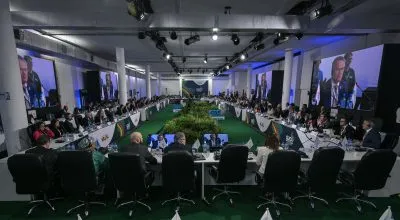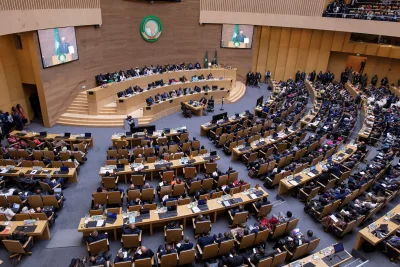Private equity is becoming an increasingly important source of finance in East Africa. Wanjohi Kabukuru reports on some important private equity deals struck over the last few years in Kenya.
As a rule, private equity (PE) has not played as important a part in the commercial life of East Africa as it has in advanced economies but it is rapidly moving into fashion as Africa’s capital markets continue to expand and diversify.
There was considerable buzz around the SuperReturn Africa conference in Nairobi as the major players in the continent’s PE sector discussed the rapidly emerging prospects available in Africa today.
“Africa is among the last great frontiers for private equity,” said Stephen Murphy, managing director at Citadel Capital. “This simple fact often leads to the assumption that African private equity investments are too risky, too commodity focused and too difficult to exit, to say nothing of the view that it is too difficult to find an established general partner with whom to invest.”
Murphy said the assumptions were wrong. Africa, he insisted was ripe for greater volumes of private equity. There have been comprehensive political and financial reforms across the continent, it has a population of around one billion, some of the world’s fastest-growing economies and contains the some of the most essential commodities and minerals that the global industry requires.
In addition, it has strong sovereign credits worth around $450bn, the growing presence of some of the world’s largest corporates and, surprisingly, a neglected PE sector just waiting to be exploited.
Citadel Capital is one of the leading PE firms in Africa and the Middle East with footprints in 15 countries and encapsulating 15 industries estimated to cost $8.7bn.
“Africa is about opportunity, the opportunity to do better because of brighter macroeconomic fundamentals, and on a micro level because of its natural resources; the opportunity to create and grow new businesses and the opportunity to improve existing businesses,” said Murphy.
Ten years ago, only one African country offered viable prospects for private investors. Today there are at least 21 nations out of Africa’s total of 54 offering massive openings for PE – and the number is growing.
Profits of health
Africa’s consumer market, value added exports, high yielding agricultural sector, profitable extractive industries and high impact infrastructure projects are some of the projects that have attracted investors into the continent. While PE may be in its early days in the rest of Africa, it has already had an impact in Kenya. In 2008, the TBL Mirror Fund BV purchased, for an undisclosed amount, a stake in Meridien Medical Clinics. In 2010 Aureos Capital bought a 26% stake in Nairobi Women’s Hospital at a cost of $2.5m and announced that they would be investing a further $4-$7m in Kenya’s healthcare sector.
The Netherlands-based Investment Fund for Health in Africa (IFHA) bought a 20% stake for $8.3m in healthcare provider AAR Holdings.
Last year, the Germany-based private equity fund, African Development Corporation (ADC), bought a 25% stake in health insurance provider Resolution Health. According to the Kenya National Bureau of Statistics (KNBS), Kenyans finance up to 52% of their healthcare costs from their own pockets. The KNBS data goes on to show that between 2005 and 2009 the value of healthcare services in Kenya reached $754m, with no signs of slowing down.
In February 2010, Citadel Capital acquired a stake in Rift Valley Railways (RVR). Through Platform Company Africa Railways, Citadel controls 51% of RVR; the remaining 49% is held by partners Transcentury and Bomi Holdings.
RVR has a 25-year concession to operate the 2,352km railway linking the Indian Ocean port city of Mombasa all the way to Kampala, Uganda.
From this year on, RVR shareholders hope to implement a turnaround strategy that includes acquisition of a new fleet of coaches and engines, upgrading of operational systems and rehabilitation of infrastructure estimated to cost $287m.
In 2008, there were nine private equity firms in the Kenyan market; at present there are close to 40 private equity investors in Kenya.
Want to continue reading? Subscribe today.
You've read all your free articles for this month! Subscribe now to enjoy full access to our content.
Digital Monthly
£8.00 / month
Receive full unlimited access to our articles, opinions, podcasts and more.
Digital Yearly
£70.00 / year
Our best value offer - save £26 and gain access to all of our digital content for an entire year!
 Sign in with Google
Sign in with Google 



